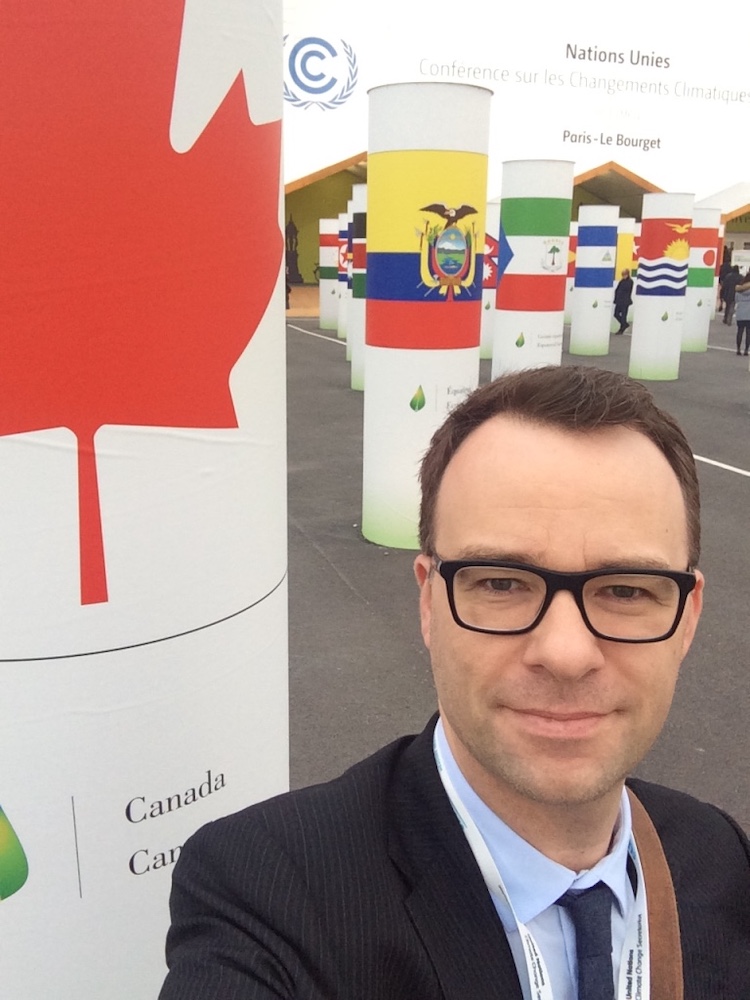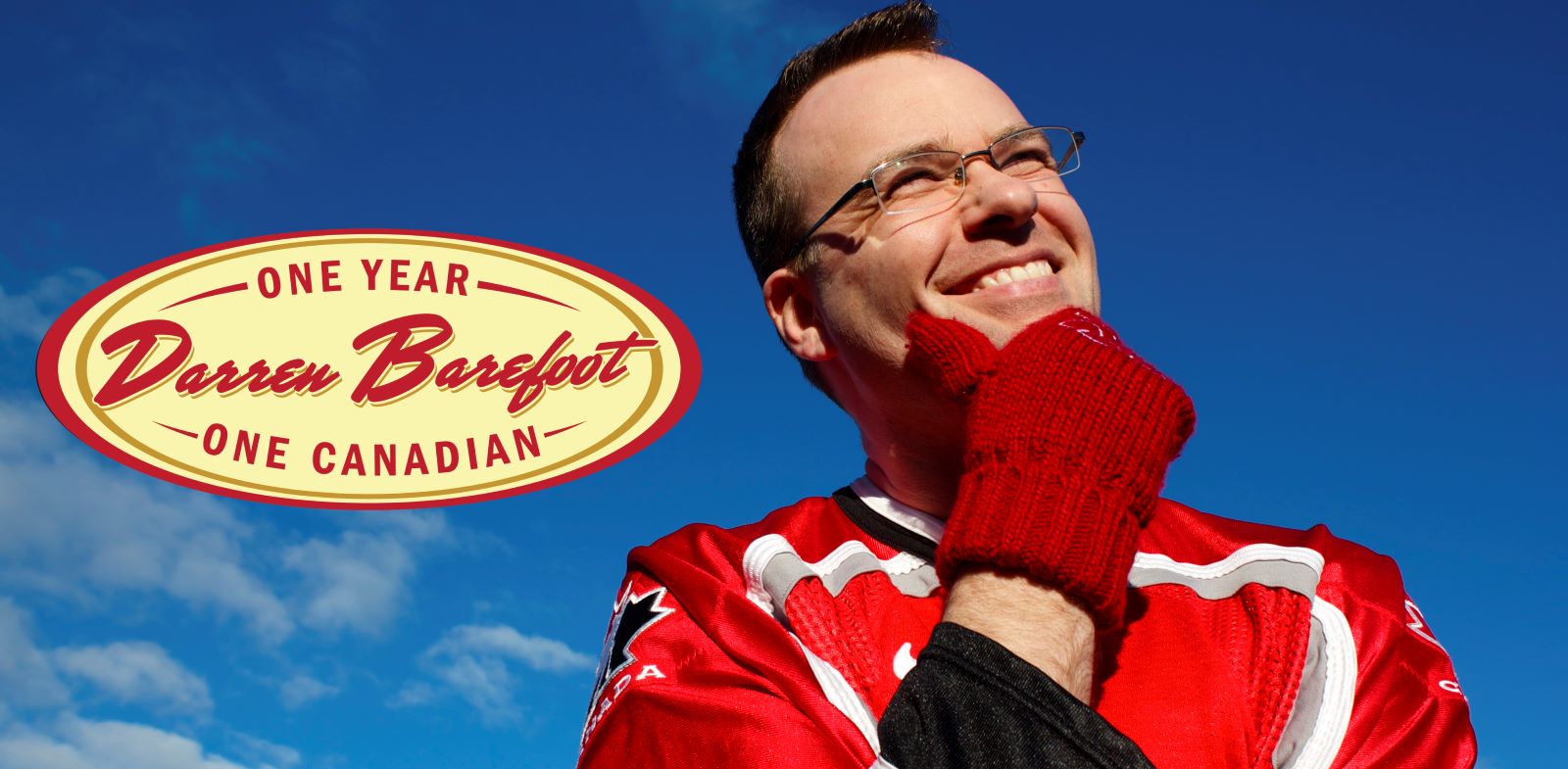Public sentiment is everything. With public sentiment, nothing can fail. Without it, nothing can succeed. — Abraham Lincoln
Darren Barefoot died one year ago today. He was my husband and business partner, and a guiding light for the work we did together with environmental non-profits for 20 years.
Darren’s approach to climate action inspired many. He persuaded local non-profits, global agencies and even the United Nations Climate Change Secretariat to lean into storytelling as a potent climate action tool.
His work is unfinished, but his legacy as a changemaker endures today through the Darren Barefoot Legacy Fund. The project helps campaigners develop their storytelling skills so they can go up against the billion-dollar corporations that have nearly unlimited resources to push their narratives, greenwash their sins and convince the world to carry on with business as usual.
In the 12 brief weeks between Darren’s terminal diagnosis and his death — amidst chemo treatments and emergency hospital admissions — Darren wrote 19 letters. Fifteen are for me. The remaining four were for our staff at Capulet, the communications firm Darren and I started in 2003 to support environmental non-profits in telling their stories.
Each letter is a cache of encouragement, a pep talk, a playbook for this last-ditch effort to save our planet. Today I’m sharing wisdom and strategies from Darren’s life and letters to spark hope for the work that lies ahead of all of us.

Strategy #1: Be remarkable
Darren believed that doing something remarkable was the best way to go up against corporations in a competitive communications landscape. Over three decades, he launched a series of creative personal projects that sparked public discussion about high-value issues: same-sex marriage, poverty reduction and consumerism.
In 2011, he vowed to buy only products made in Canada; to eat only Canadian food and to consume only Canadian media. The project was called “One Year, One Canadian.” Not only was it a media darling, he found it fascinating and fun. His project drew attention to the complexities of globalism and the environmental strain and pain it puts on the planet.
Be remarkable. Put your compassion for and commitment to planet Earth in first place in your imagination and in your actions. Is there a creative act you can do to motivate others in this moment of climate anxiety and fatigue? Chart the activities of a particular villain in the climate change story? Write a discussion piece about what’s occurring that might offer some hope? Create a mission statement for yourself, focusing on how you will exert “peer pressure” around environmental conservation? Financially support the next generation of climate activists?
Strategy #2: Outsmart the competition
The Pathways Alliance, funded by Canada’s six largest oil companies, has spent millions to tout their goal of net-zero operations by 2050. Yet, research suggests that their emissions are 65 per cent higher than they’ve reported.
In the era of mis- and dis-information, we know that simply rebutting lies won’t get the job done.
Darren admired clever solutions to entrenched problems, which is why he was so pleased to work alongside West Coast Environmental Law and partner organizations on the “Sue Big Oil” campaign. This movement of British Columbians urges local governments to join a class action lawsuit to sue oil companies for their fair share of climate costs. Suing the world’s largest oil companies will provide B.C. communities and local governments with the resources they’ll need to pay for ballooning climate costs while pressuring the fossil fuel industry to cut back on climate-destroying practices.
The smart versus the mighty is not a myth. David and Goliath tactics that empower individuals, like the “Sue Big Oil” campaign, are gaining traction and starting to tip public sentiment against the status quo.
Strategy #3: Be brave
Scientific reports and climate data have failed to change social sentiment on climate action.
Even after our worst-ever summer of wildfire, only six out of 10 Canadians say more needs to be done by government and businesses to fight climate change. It’s time for a different strategy.
Social scientists say peer pressure is a key influencer on how we feel about issues and what we believe. Darren seemed to know this instinctively. He spoke out about the environment early on, publishing his first opinion piece on climate change in the Vancouver Sun when he was 19. In that article he urges action: “To have anything more than a trivial effect, every one of us [must] consider the implications of every one of our actions. A radical change, indeed.”

Three decades later, Capulet’s social behaviour-change strategy follows Darren’s example with campaigns that encourage Canadians to speak out and influence social sentiment. It’s something we can all do within our own public and private spheres of influence.
So, let’s be brave. Share climate advocacy actions on social media. Publicly celebrate legislation that penalizes oil companies. Support Indigenous-led protected and conserved areas. And then watch knowledge, attitudes and behaviours begin to shift in those around you.
The Darren Barefoot Legacy Fund is an invaluable pathway to continuing his work. In under a year, the fund has reached 62 per cent of its $100,000 target, raising $62,000 from 164 donors. Once the final $38,000 has been raised, the fund will become self-sustaining, annually granting $5,000 to climate change communicators to continue building their capacity to challenge corporations.
As I begin a second year on this planet without Darren, my own fondest hope is that his letters of encouragement will ignite in us bravery, wisdom and remarkability in the care of our planet about whose future we are so concerned. ![]()
Read more: Local Economy, Media, Environment
This article is part of a Tyee Presents initiative. Tyee Presents is the special sponsored content section within The Tyee where we highlight contests, events and other initiatives that are either put on by us or by our select partners. The Tyee does not and cannot vouch for or endorse products advertised on The Tyee. We choose our partners carefully and consciously, to fit with The Tyee’s reputation as B.C.’s Home for News, Culture and Solutions. Learn more about Tyee Presents here.

















Tyee Commenting Guidelines
Comments that violate guidelines risk being deleted, and violations may result in a temporary or permanent user ban. Maintain the spirit of good conversation to stay in the discussion and be patient with moderators. Comments are reviewed regularly but not in real time.
Do:
Do not: